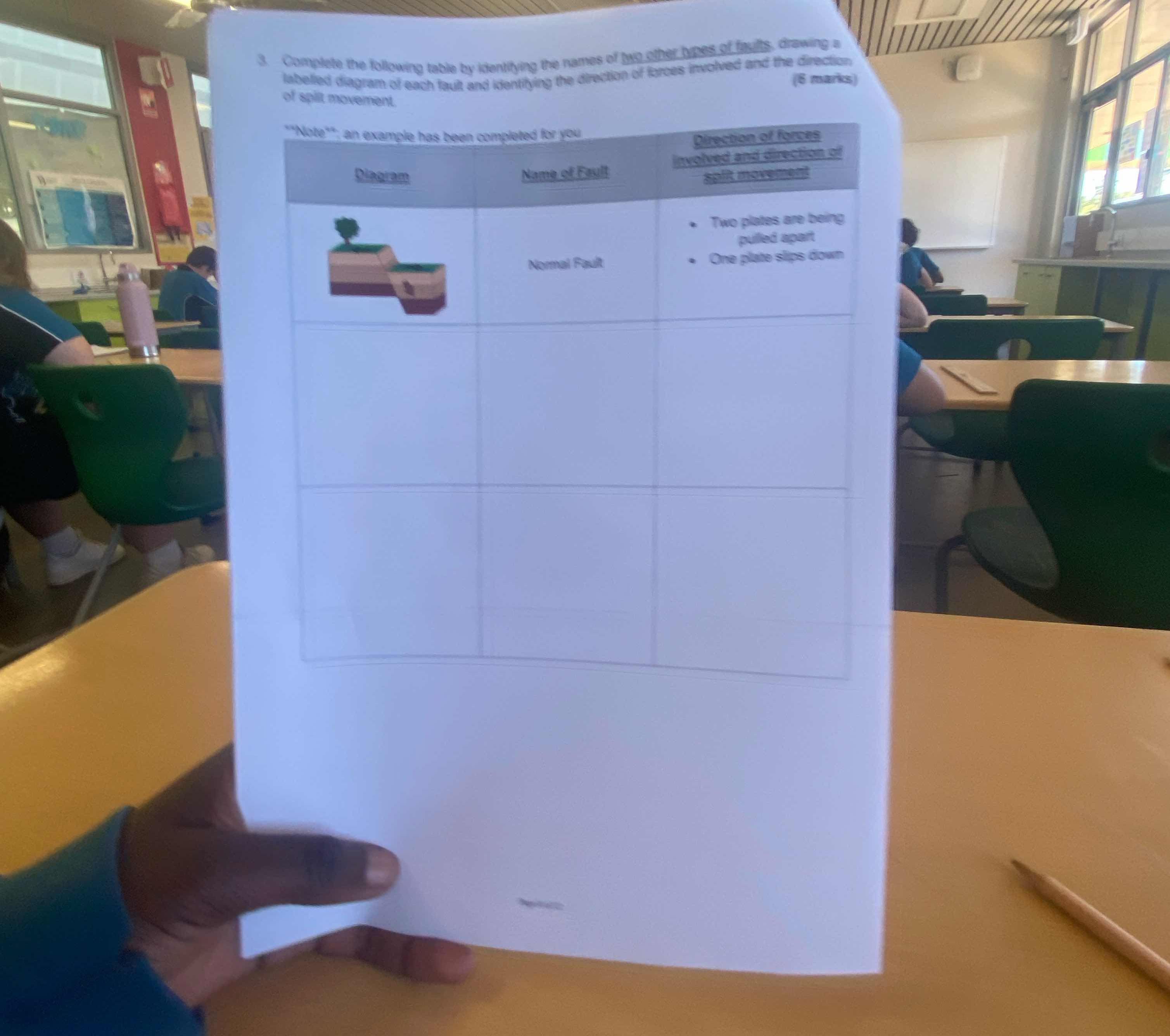Complete the following table by identifying the names of two other types of faults, drawing a labeled diagram of each fault and identifying the direction of forces involved and the... Complete the following table by identifying the names of two other types of faults, drawing a labeled diagram of each fault and identifying the direction of forces involved and the direction of slip movement.

Understand the Problem
The question requires identifying and naming two types of faults in a geological context, along with drawing labeled diagrams for each fault and describing the direction of force involved and the direction of slip movement.
Answer
Reverse and strike-slip faults involve compressional and lateral forces, respectively.
Identify reverse and strike-slip faults, draw diagrams, and describe force directions: compressional and lateral.
Answer for screen readers
Identify reverse and strike-slip faults, draw diagrams, and describe force directions: compressional and lateral.
More Information
Normal faults occur due to tension, reverse faults due to compression, and strike-slip faults involve lateral movement. Diagrams should indicate the hanging wall and footwall for clarity.
Tips
Confusing slip directions: remember that normal and reverse relate to vertical movement, while strike-slip is horizontal.
Sources
- 3 Types of Faults: Normal, Reverse and Strike-Slip - Earth How - earthhow.com
- Fault and Types of Faults - Geology Science - geologyscience.com
AI-generated content may contain errors. Please verify critical information